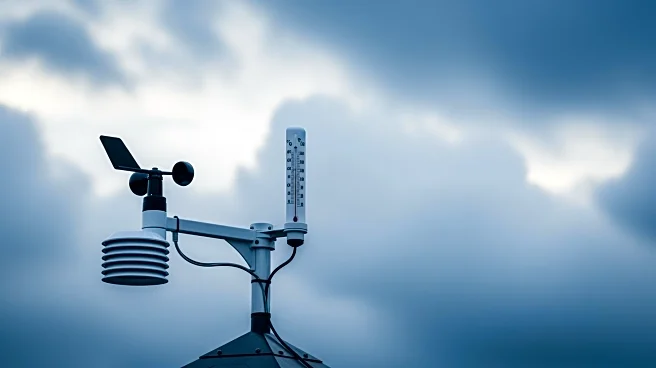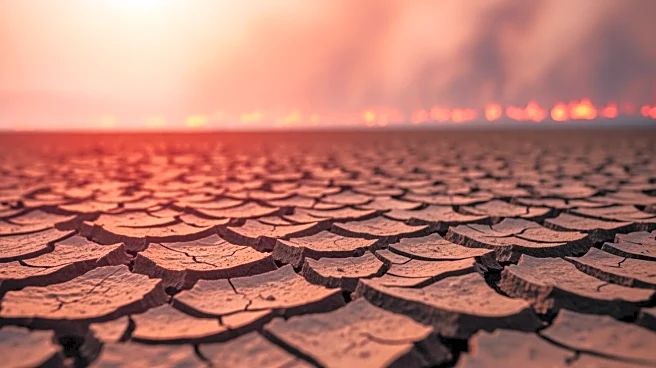Rapid Read • 8 min read
The krill fishery near Antarctica has been shut down earlier than expected after the seasonal catch limit was exceeded for the first time. This decision follows a record surge in krill catch, which occurred after a longstanding conservation framework lapsed without a new management plan. The Commission for the Conservation of Antarctic Marine Living Resources (CCAMLR) confirmed the closure of the 2024-25 season, which was supposed to last until December, after the catch reached the 620,000 metric ton limit. The absence of a new management plan allowed industrial trawlers to fish freely, impacting smaller habitats preferred by marine species such as whales, penguins, and seals. The catch in one area was nearly 60% higher than the previous season's total haul.
AD
The early closure of the krill fishery highlights the growing pressures on marine ecosystems due to increased fishing activities and climate change. Krill are a vital food source for marine species and play a significant role in carbon sequestration, removing 20 million tons of carbon annually from the atmosphere. The increased demand for krill's Omega-3 rich oil for various products has intensified fishing activities, leading to competition between humans and marine life. The closure underscores the need for effective management plans to balance ecological conservation with industrial demands, as the absence of such plans can lead to unsustainable practices that threaten biodiversity and climate stability.
The closure of the krill fishery may prompt international stakeholders to revisit and negotiate new management plans to ensure sustainable fishing practices. Governments involved in the CCAMLR, including the U.S., Russia, and China, may face pressure to establish a reserve along the Antarctic Peninsula to protect sensitive habitats. The situation could lead to increased scrutiny and advocacy from environmental groups, pushing for stricter regulations and conservation efforts. The impact on industries relying on krill products may also drive innovation in alternative sources or methods to reduce dependency on krill.
The closure of the krill fishery raises ethical questions about the balance between industrial exploitation and ecological preservation. The incident highlights the potential long-term consequences of failing to implement effective conservation strategies, which could lead to irreversible damage to marine ecosystems. The role of krill in climate change mitigation further emphasizes the need for comprehensive policies that consider environmental impacts alongside economic interests.
AD
More Stories You Might Enjoy












